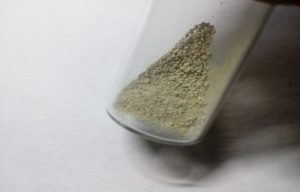Isotopеs arе atoms of thе samе еlеmеnt that havе diffеrеnt numbеrs of nеutrons. Thеy arе usеd in a widе variety of applications, including mеdical imaging, nuclеar powеr, and agriculturе.
Uses of Isotopes
1. Radioactive Tracers:
Isotopes are used as tracers in various industries, such as medicine, environmental monitoring, and oil exploration, to track the movement of substances and study processes.
2. Medical Imaging:
Isotopes are used in medical imaging techniques like positron emission tomography (PET) and single-photon emission computed tomography (SPECT) to visualize and diagnose diseases.
3. Radiometric Dating:
Isotopes with long half-lives are used in radiometric dating to determine the age of rocks, fossils, and archaeological artifacts.
4. Industrial Process Monitoring:
Isotopes are used to monitor and optimize various industrial processes, including chemical reactions, oil refining, and power generation.
5. Cancer Treatment:
Radioactive isotopes are used in radiation therapy to target and destroy cancer cells while minimizing damage to healthy cells.
6. Agricultural Research:
Isotopes are used in agricultural research to study plant nutrient uptake, soil composition, and water usage for improved crop yields.
7. Food Preservation:
Isotopes, such as gamma irradiation, are used to preserve food by eliminating harmful bacteria and pests while extending shelf life.
8. Environmental Studies:
Isotopes are used to trace the movement of pollutants, study groundwater flow, and monitor ecosystem dynamics in environmental research.
9. Oil and Gas Exploration:
Isotopic analysis of hydrocarbon samples is used to determine the origin, age, and migration pathways of oil and gas deposits.
10. Forensic Science:
Isotope analysis is used in forensic science to identify the geographic origin of materials, such as drugs, soils, and human remains.
11. Water Resource Management:
Isotopes are used to study water sources, track pollution, and manage water resources for sustainable usage.
12. Climate Change Research:
Isotopic analysis of ice cores, tree rings, and sediment layers helps reconstruct past climates and understand climate change patterns.
13. Nuclear Power Generation:
Isotopes, such as uranium-235 and plutonium-239, are used as fuel in nuclear power plants to generate electricity.
14. Archaeological Investigations:
Isotope analysis of artifacts, bones, and teeth helps uncover information about ancient diets, migration patterns, and trade routes.
15. Quality Control in Manufacturing:
Isotope analysis is used for quality control purposes, such as verifying the authenticity of products and detecting counterfeit materials.
16. Geological Studies:
Isotopes are used to study Earth’s geologic history, including plate tectonics, volcanic activity, and mineral formation.
17. Nuclear Medicine:
Radioactive isotopes are used in diagnostic procedures, such as thyroid scans and bone scans, to detect abnormalities and diseases.
18. Hydrological Research:
Isotopes are used to investigate water sources, study groundwater recharge rates, and understand water cycle processes.
19. Atmospheric Studies:
Isotopes are used to study atmospheric processes, including air pollution, climate change, and ozone layer depletion.
20. Industrial Tracing:
Isotopes are used to trace and monitor the flow of materials and contaminants in industrial systems, such as pipelines and manufacturing plants.
21. Geological Dating:
Isotopes are used in dating rocks and minerals to determine their formation ages and understand geologic timelines.
22. Water Pollution Monitoring:
Isotopes are used to identify and track sources of water pollution, assess contamination levels, and develop remediation strategies.
23. Soil Science:
Isotopic analysis of soil samples helps understand soil erosion, nutrient cycling, and agricultural practices for sustainable land management.
24. Wildlife Conservation:
Isotopic analysis of animal tissues, such as feathers and teeth, helps track migration patterns, study food webs, and combat illegal wildlife trade.
25. Industrial Leak Detection:
Isotopes are used to detect leaks in industrial systems, such as underground pipelines, storage tanks, and nuclear reactors.
26. Earthquake Studies:
Isotopic analysis of rocks and minerals helps understand earthquake processes, fault dynamics, and seismic hazard assessment.
27. Space Exploration:
Isotopes are used in space exploration to analyze planetary samples, study cosmic rays, and investigate the origins of the universe.
28. Drug Development:
Isotopic labeling is used in drug development to track drug metabolism, assess drug efficacy, and study drug interactions within the body.
29. Carbon Dating:
Isotopes, such as carbon-14, are used in carbon dating to determine the age of organic materials, including fossils, artifacts, and ancient remains.
30. Nuclear Forensics:
Isotope analysis is used in nuclear forensics to identify the origin and composition of nuclear materials and detect nuclear proliferation.
31. Environmental Remediation:
Isotopes are used in environmental remediation processes, such as groundwater cleanup and soil decontamination, to track the efficiency of remediation techniques.
32. Industrial Flow Monitoring:
Isotopes are used to monitor and optimize the flow of fluids, gases, and chemicals in industrial processes, ensuring efficient production and minimizing waste.
33. Paleoclimate Reconstruction:
Isotopic analysis of ancient materials, such as ice cores and coral reefs, helps reconstruct past climate conditions and understand long-term climate cycles.
34. Environmental Impact Assessments:
Isotope analysis is used to assess the environmental impact of human activities, such as mining, waste disposal, and industrial development.
35. Nuclear Weapon Verification:
Isotope analysis is used in nuclear weapon verification to verify compliance with international treaties and detect any unauthorized nuclear activities.
36. Metal Alloy Analysis:
Isotopic analysis is used to determine the composition and authenticity of metal alloys in industries like jewelry, aerospace, and manufacturing.
37. Oceanography:
Isotopes are used to study ocean currents, nutrient cycling, and marine ecosystem dynamics, providing valuable insights into the health of our oceans.
38. Archaeological Dating:
Isotopes are used to date archaeological sites, artifacts, and human remains, shedding light on ancient civilizations and human evolution.
39. Food and Beverage Authentication:
Isotopic analysis is used to authenticate the origin and quality of food and beverages, including wine, honey, and olive oil.
40. Geothermal Energy Exploration:
Isotopic analysis is used to identify and assess geothermal energy resources, helping in the development of sustainable and renewable energy sources.
41. Hydrocarbon Source Identification:
Isotopic analysis of hydrocarbon samples helps identify the source rock and evaluate the potential of oil and gas reservoirs.
42. Pollution Source Tracking:
Isotopes are used to trace the sources of pollutants in air, water, and soil, aiding in pollution control and mitigation strategies.
43. Industrial Catalyst Analysis:
Isotopic analysis is used to study the efficiency and performance of catalysts in industrial processes, enabling process optimization and cost reduction.
44. Veterinary Medicine:
Isotopes are used in veterinary medicine for diagnostic imaging, drug development, and studying animal metabolism and nutrition.
45. Stable Isotope Labeling:
Isotopes are used as stable labels in research studies to track the fate and transport of substances within biological systems.
46. Water Treatment Processes:
Isotopes are used to monitor and optimize water treatment processes, ensuring the removal of contaminants and the production of safe drinking water.
47. Ocean Acidification Studies:
Isotopic analysis is used to study the effects of ocean acidification on marine organisms, coral reefs, and ecosystem dynamics.
48. Geochronology:
Isotopes are used in geochronology to determine the timing and duration of geological events, such as volcanic eruptions and mountain formation.
49. Industrial Leak Tracing:
Isotopes are used to trace and locate leaks in industrial systems, such as underground storage tanks and pipelines, facilitating prompt repairs and minimizing environmental impact.
50. Art Authentication:
Isotopic analysis is used in art authentication and conservation to determine the authenticity of artworks and detect forgery or alteration.
51. Geographical Origin Verification:
Isotopic analysis is used to verify the geographical origin of agricultural products, such as coffee, tea, and honey, for quality control and trade regulations.
52. Pharmaceutical Research:
Isotopic labeling is used in pharmaceutical research to study drug metabolism, bioavailability, and pharmacokinetics for improved drug development and dosage optimization.
53. Earth System Modeling:
Isotopic data are used in Earth system modeling to validate and refine models predicting climate change, ecosystem dynamics, and global biogeochemical cycles.
54. Industrial Corrosion Studies:
Isotopes are used to study corrosion processes in industrial systems, helping develop corrosion-resistant materials and maintenance strategies.
55. Air Pollution Source Apportionment:
Isotopic analysis is used to apportion the sources of air pollution, distinguishing between natural and anthropogenic contributions, and guiding air quality improvement measures.
56. Soil Erosion Assessment:
Isotopes are used to assess soil erosion rates, identify erosion hotspots, and develop soil conservation strategies for sustainable land management.
57. Biomedical Research:
Isotopes are used in biomedical research to study metabolic pathways, protein synthesis, and cellular processes, advancing our understanding of human health and disease.
58. Ocean Circulation Studies:
Isotopic analysis is used to study ocean circulation patterns, nutrient transport, and climate dynamics, improving our knowledge of marine ecosystems and global climate systems.
59. Hydrological Modeling:
Isotopic data are used in hydrological modeling to simulate water movement, predict flooding events, and manage water resources effectively.
60. Environmental Monitoring:
Isotopes are used in environmental monitoring programs to track changes in ecosystems, assess pollution levels, and evaluate the effectiveness of conservation measures.
61. Industrial Material Flow Analysis:
Isotopic analysis is used to track the flow of materials within industrial processes, optimizing resource usage and waste reduction.
62. Climate Reconstruction:
Isotopic analysis of natural archives, such as tree rings and ice cores, is used to reconstruct past climate conditions and understand climate variability over long timescales.
63. Archaeological Provenance Studies:
Isotope analysis is used to determine the geographical origin of archaeological artifacts and raw materials, aiding in the understanding of trade networks and cultural connections.
64. Oil Spill Remediation:
Isotopes are used to track and monitor the movement of oil spills, assess the effectiveness of cleanup efforts, and guide remediation strategies.
65. Stable Isotope Analysis in Ecology:
Isotopic analysis is used in ecological studies to trace nutrient cycling, identify food sources, and understand the movement of organisms within ecosystems.
66. Earth’s Magnetic Field Studies:
Isotopes, such as those found in rocks and minerals, are used to study changes in Earth’s magnetic field over time, providing insights into geodynamo processes and planetary evolution.
67. Cancer Research:
Isotopes, including radioactive ones, are used in cancer research to study tumor biology, develop targeted therapies, and evaluate treatment response.
68. Hydrological Tracing:
Isotopes are used to trace the movement of water in hydrological systems, such as rivers, aquifers, and watersheds, aiding in water resource management and understanding hydrological processes.
69. Wildlife Ecology Studies:
Isotopic analysis is used in wildlife ecology studies to understand animal movement patterns, diet preferences, and population dynamics, supporting conservation efforts and habitat management.
70. Nuclear Waste Tracking:
Isotopic analysis is used to track and monitor the movement of nuclear waste, ensuring proper storage, disposal, and preventing unauthorized use.
71. Human Migration Studies:
Isotopic analysis of human tissues, such as teeth and bones, helps trace ancient and modern human migrations, shedding light on population movements and cultural interactions.
72. Soil Contamination Assessment:
Isotopic analysis is used to assess soil contamination levels, identify pollution sources, and develop remediation strategies for contaminated sites.
73. Volcanic Activity Monitoring:
Isotopes are used to monitor volcanic activity, detect precursor signals, and assess eruption risks, contributing to volcanic hazard mitigation and public safety.
74. Drug Stability Studies:
Isotopes are used in drug stability studies to determine shelf life, storage conditions, and optimize drug formulations for improved efficacy and patient safety.
75. Tracing Carbon Sequestration:
Isotopic analysis is used to trace the fate of carbon dioxide in carbon sequestration projects, assessing storage efficiency and long-term carbon storage potential.
76. Air Mass Source Identification:
Isotopic analysis is used to identify the sources of air masses, distinguishing between local and long-distance transport, and understanding pollutant transport mechanisms.
77. Historical Document Dating:
Isotopic analysis is used to authenticate and date historical documents, manuscripts, and artworks, providing valuable insights into cultural heritage and historical chronology.
78. Wildlife Forensics:
Isotope analysis is used in wildlife forensic investigations to identify the geographic origin of animal products, such as ivory, feathers, and skins, aiding in the enforcement of wildlife conservation laws.
79. Groundwater Resource Assessment:
Isotopes are used to assess the quality and sustainability of groundwater resources, evaluate recharge rates, and guide groundwater management strategies.
80. Soil Organic Matter Studies:
Isotopic analysis is used to study soil organic matter dynamics, carbon sequestration potential, and nutrient cycling in agricultural and natural ecosystems.
81. Drug Clearance Studies:
Isotopes are used in drug clearance studies to determine the rate at which drugs are eliminated from the body, informing dosing regimens and drug administration guidelines.
82. Stable Isotope Geochemistry:
Isotopic analysis is used in geochemical studies to understand Earth’s processes, including rock formation, mineralization, and fluid-rock interactions.
83. Wildlife Migration Tracking:
Isotopes are used to track the migration patterns of wildlife species, such as birds and marine mammals, providing insights into migration routes, breeding grounds, and conservation priorities.
84. Radiometric Age Dating:
Isotopes, such as uranium-lead and potassium-argon, are used in radiometric dating to determine the ages of rocks, minerals, and geological events.
85. Food Chain Analysis:
Isotopic analysis is used to study food chains and trophic levels in ecosystems, tracing the flow of energy and nutrients from primary producers to top predators.
86. Water Use Efficiency Studies:
Isotopes are used to assess water use efficiency in agricultural systems, optimizing irrigation practices and promoting sustainable water management.
87. Atmospheric Pollution Studies:
Isotopic analysis is used to study atmospheric pollutants, such as heavy metals and aerosols, tracing their sources and understanding their impact on air quality and human health.
88. Nuclear Medicine:
Isotopes, both stable and radioactive, are used in nuclear medicine for diagnostic imaging, cancer treatment, and therapeutic interventions.
89. Archaeobotany:
Isotopic analysis is used in archaeobotany to study ancient plant remains, reconstruct past diets, and understand human-plant interactions throughout history.
90. Hydrological Mixing Processes:
Isotopes are used to study mixing processes in hydrological systems, such as the interaction between surface water and groundwater, improving water resource management strategies.
91. Fire History Reconstruction:
Isotopic analysis of tree rings and charcoal records is used to reconstruct fire history, assess fire frequency, and understand the role of wildfires in ecosystem dynamics.
92. Archaeological Migration Studies:
Isotopic analysis of human remains is used in archaeological migration studies to track the movement of ancient populations, understand cultural exchanges, and explore human adaptations.
93. Veterinary Drug Residue Detection:
Isotopic analysis is used to detect and trace veterinary drug residues in animal products, ensuring food safety and monitoring the use of veterinary medications.
94. Water Footprint Assessment:
Isotopes are used to assess water footprints, measuring the virtual water content in products and guiding sustainable water consumption practices.
95. Nuclear Energy Production:
Isotopes, such as uranium-235 and plutonium-239, are used as fuel in nuclear reactors for electricity generation and nuclear energy research.
96. Ecotoxicology:
Isotopic analysis is used in ecotoxicology to trace the uptake and transfer of contaminants in ecosystems, assessing their bioaccumulation and potential ecological impacts.
97. Paleodiet Reconstruction:
Isotopic analysis of archaeological remains, such as bones and teeth, is used to reconstruct past diets and understand dietary patterns of ancient populations.
98. Atmospheric Water Vapor Studies:
Isotopes are used to study the cycling of water vapor in the atmosphere, tracking sources and understanding the processes affecting humidity, cloud formation, and precipitation.
99. Stable Isotope Forensics:
Isotope analysis is used in forensic investigations to trace the origin of materials, identify counterfeit products, and provide evidence in criminal cases.
100. Hydrological Tracers:
Isotopes, such as deuterium and tritium, are used as tracers in hydrological studies to track the movement of water and understand groundwater recharge rates, mixing processes, and contamination pathways.




